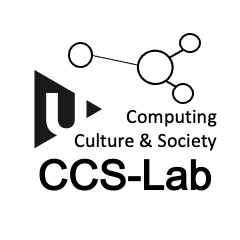On behalf of CCS-Lab at the University of West Bohemia and the co-organizing institutions, we invite you to the workshop:
Computing the Past:
Computational approaches to the dynamics of cultures and societies
to take place in Plzeň, Czech Republic
on October 6-8, 2022
Call for papers
Digitized datasets and novel computational methods open up new avenues for the study of the human past. Over the last few decades, the ambition to explore these new avenues became apparent in many SSH disciplines concerned by the dynamics of human cultures and societies. We have seen an emergence of new specialized subdisciplines, like computational archeology, digital history, or digital literary studies, to name but a few, with their own conferences, workshops, and publication venues. However, with the emergence of these new subdisciplines, it appears that disciplinary divisions still tend to hinder a better integration of knowledge. The main ambition of this workshop is to help to overcome this limitation by offering an opportunity for researchers from different disciplines concerned with the human past to meet together around one table. We believe that the shared interest in computational methods and digital datasets is an ideal precondition for a stimulating conversation which could lead to an interdisciplinary cross-fertilization. The workshop pays special attention to the historical environment of the ancient Mediterranean (AM). As a widely studied historical environment, AM is also an area in which the computational approaches are thriving across numerous subdisciplines. The event will culminate in a panel discussion with several experts on the history of AM – including the keynote speakers – with the title “Computing the Ancient Mediterranean”. We hope that the discussion will help us to identify the most important issues impeding the study of the past in the digital age in general.
Keynote speakers:
- Monica Berti (Leipzig University, a Classicist and Digital Humanist, focusing on computational analysis of ancient Greek and Latin)
- Tom Brughmans (Aarhus University, Denmark; an Archeologist studying Roman economy and a proponent of formal network analysis and computer simulations in archeology)
- István Czachesz (University of Tromsø Norway; a Biblical Scholar and a pioneer in application of computational, cognitive and evolutionary approaches to early Christianity)
Submission formats & topics
We invite proposals for papers (20 minutes) and/or posters dealing with any aspect of computational approaches in the study of the human past, especially on the following topics:
- computational text analysis and natural language processing of historical texts
- formal network analysis of archeological and historical datasets
- computer simulations (e.g. ABM) of historical phenomena
- computer visualization techniques of historical and archeological artifacts
- theoretical reflections on computational approaches to the past
- reflections on collaboration between SSH and technical disciplines
Submission deadline: May 15, 2022; notification of acceptance: June 15, 2022
- Paper/poster submission form: CLOSED
